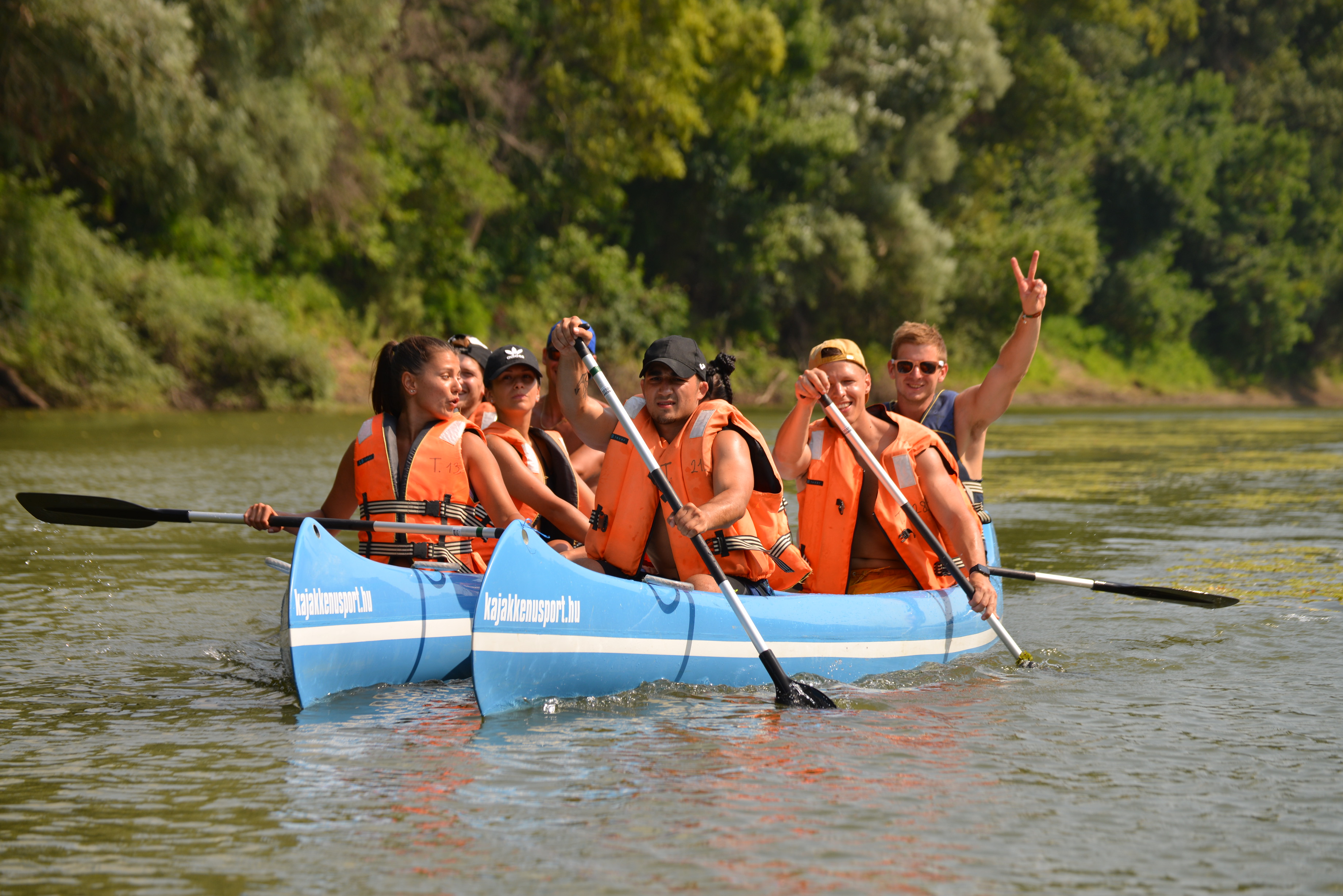1ST STAGE: Pilot programme; 23-29 August 2019: Tiszakécske-Csongrád-Mindszent-Szeged.
2ND STAGE: Pilot programme; 31 August – 5 September 2019; The Programme Closing Conference was held on 5 September 2019, at Sport Centar – Faculty of Sport and Physical Education, University of Novi Sad, dr Vase Savića 3 21 000 Novi Sad
The pilot programme contributed to the creation of new destinations in water tourism along the river Tisza, in the border regions of Hungary and Serbia, by exploring on-site mooring facilities (e.g. sandy beaches, stairs), local attractions (e.g. natural values, cultural traditions) and available services (e.g. accommodation, catering, shopping, rentals). We visited the local attractions, which could only be found in various sources before the WATERTOUR programme. We organised the first part of a two-week kayak-canoe trip for the students of the University of Szeged and the University of Novi Sad, which was combined with sharing academic knowledge about the geography and culture of the region, in addition to the sports and leisure activities.
Students and instructors rafted, ate together and participated in joint programs to learn about each other’s language and culture, and to make suggestions for necessary tourism developments.
During the tour we organised joint professional meetings in Kanjiza (31 August 2019), in Bečej (3 September 2019) and Novi Sad (5 September 2019), and promoted the cooperation of Serbian and Hungarian students in professional, community, social, sports, recreational and environmental programmes. In Bečej the participants were greeted by Professor Dr Milošević, the Provincial Secretary for Higher Education and Scientific Research and President of the Municipality and Mr Tosic, who expressed their support of the project and welcomed the idea of further developing the cooperation between Serbian and Hungarian universities.
The two universities are located relatively close to one another in the euroregion and they already engage in professional cooperation in various areas, therefore we found it important to organise joint programmes for students. A novel feature of the project was that it enabled the participating Serbian and Hungarian students to meet and cooperate through professional, community, cultural, sports, recreational and environmental programmes. This programme could be repeated every year. Through the popularisation of water tourism and the strengthening of the role of nearby towns and villages, and by popularizing the practical achievements of service providers in the field of tourism, the geostrategic position of the Southern Great Plain and Vojvodina regions could be stabilised.
At the end of the water tour the overall impression was that it had been a successful and eventful tour, bringing students and professors from different universities together, and creating long-lasting relationships for the future. It was particularly important that this activity unveiled many strengths as well as weaknesses of water tourism along the river Tisza, which could now be addressed to build the capacity for this type of tourism in the region. All participants expressed their desire to continue cooperating in similar projects in the future.
